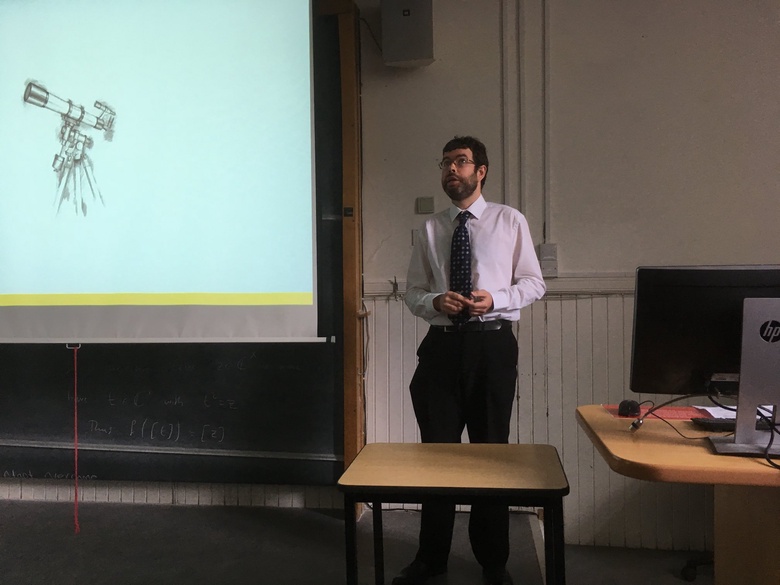
| What did you do? | I used OMBEA Response during lectures for interactivity with the students, particularly during revision sessions in the lead up to exams. OMBEA is the University’s online polling system – see https://www.abdn.ac.uk/toolkit/systems/ombea/ – which replaces the old system that required handsets to be handed out in class for such interactivity. Handsets can be used as a backup, but students can use a smartphone or a tablet/laptop that is connected to the internet to respond to questions and vote in polls, for example. In my classes, I asked questions relating to important legal concepts and rules for the relevant course in a manner that would enlighten students as to the correct answer (i.e. this only works when there is a single correct answer – not always possible in all subjects on a law degree!) and, in one case, the questions asked in class tracked the style of what they would be asked in a multiple choice exam element they were due to sit (five options, only one correct). |
|
Why did you do it?
|
OMBEA allows you to get an instant feel of how students are getting on (more on that below). It also breaks up the lecture and switches students from “receive” to “participate” mode, which I find is particularly useful after, say, 25 or 30 minutes of a didactic lecture. Finally, it may allow students to get a feel for a future assessment, where relevant. |
|
How did you develop the idea?
|
I have used PRS handsets before so I cannot claim to be much of a revolutionary, but once I converted my PRS materials and adapted questions to take-in recent law reforms I was ready to roll. In terms of my inspiration more generally, I recall Tracey Innes used an online polling service in a Careers Service event for students (to gather careers data) and that worked well, and I also recall the possibility being mentioned in the PGCert course I studied with Darren Comber and colleagues a few years ago. |
|
What were the challenges?
|
It took a little while to update or create materials and I had to create an account with OMBEA plus learn the ropes a little bit in terms of making a session work, but it really is easy when you know how. |
|
What were the benefits to you?
|
The key benefit is it allows students to answer in a way that they won’t feel embarrassed about. I’m sure all tutors have experienced that moment when students suddenly develop an interest in their shoes when a question is asked, or perhaps found a distinct lack of responses from the whole student base when you try to throw a discussion point into a lecture. A quiz such as this allows all student to have the educational benefit of engaging with the quiz, then shy students can be encouraged to speak to an answer once they have affirmed that they are correct (when the answer is revealed). |
|
What was the impact on student learning?
|
The direct impact is difficult to gauge, but I can tell students were pretty engaged with these sessions as compared to my usual lectures. I can also confirm that on one occasion my quiz even had a welcome childcare role – a student had taken her young daughter into a class where I was using a quiz and the young lady certainly enjoyed participating, although she may have skewed my data with her guessed responses! |
|
How did your students evaluate the experience? |
Oral feedback on the day was favourable and a few approving SCEF comments were also received. There were certainly no negative comments. |
|
What did your students say? (feedback/comments from students to share?) |
See above. |
|
What hints/tips do you have for others in the future?
Additional information? |
Like multiple choice question setting, getting the right balance between wrong, wrong but “truthy”, and the right answer can be tricky, but it is worth it. Also, give yourself plenty time for each question, as students appreciate this. |
|
For further information contact:
|
Malcolm Combe m.m.combe@abdn.ac.uk |
